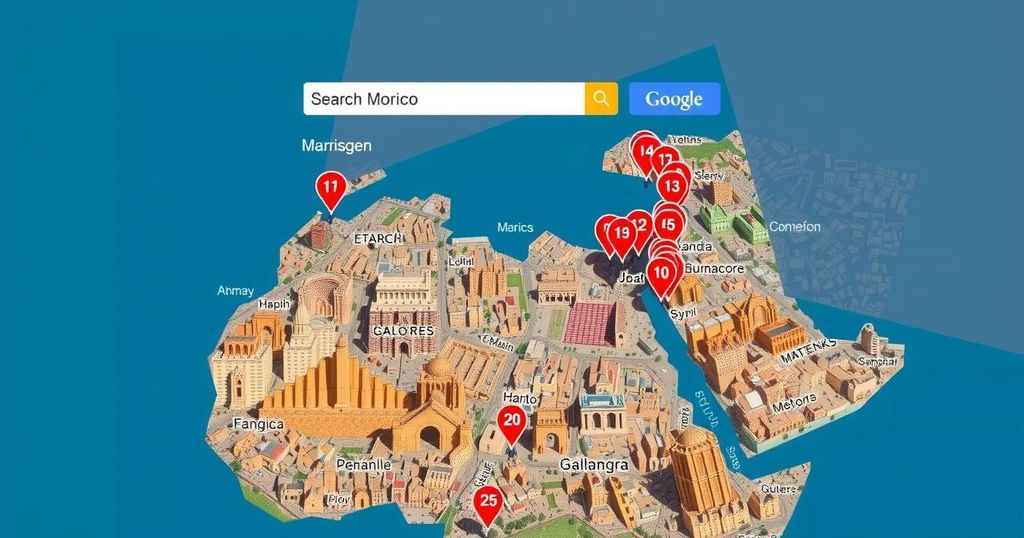Following a catastrophic earthquake in September 2023, the search engine Ecosia has provided vital support for recovery efforts in the High Atlas region of Morocco. By pledging profits from searches to the High Atlas Foundation, they have facilitated the planting of 80,000 trees, the restoration of irrigation systems, and the installation of solar panels. This collaboration aims to enhance community resilience and sustainable agricultural practices amidst ongoing challenges such as a prolonged drought.
In September 2023, Morocco experienced a catastrophic earthquake that severely affected many communities, particularly in the High Atlas region, where numerous farms and livelihoods were obliterated. However, the search engine Ecosia has emerged as a beacon of hope, pledging to donate all profits from a designated day of searches to the High Atlas Foundation (HAF) for recovery efforts. With these funds, significant strides have been made in rehabilitation, including the planting of 80,000 trees, the repair of irrigation systems, and the installation of 60 solar panels. Yossef Ben-Meir, president of the High Atlas Foundation, highlighted the earthquake’s extensive toll on local residents, noting that many families lost their homes and continue to face shelter shortages. “A village of 300 people lost half its people,” he stated. Furthermore, he emphasized the varying degrees of devastation across different areas, with some villages completely ruined while others sustained focused damage. Ecosia’s chief tree planting officer, Pieter van Midwoud, described the initiative of dedicating a day’s profit to this cause as an obvious decision, given the close relationships Ecosia has established with nearly 6,000 farmers in Morocco. “It is a moment where you put everything aside and say ‘we have to do this,’” he remarked. Ecosia has collaborated with HAF and local farmers for eight years, contributing to various projects, including the establishment of eight nurseries that produce seedlings for farmers and cooperatives. In the High Atlas region, trees are integral to agricultural practices, enhancing resilience to erosion and climate change. Following the earthquake, Ecosia sought to assist the most affected villages by restoring essential infrastructure, including water systems to support agricultural recovery. Ben-Meir asserted the importance of these efforts for community revitalization and expanding economic opportunities. He elaborated, “Many of these communities want to plant trees as they transition from barley and corn.” The challenges faced by the region have been exacerbated by a prolonged six-year drought, complicating rewilding initiatives. The collaboration between Ecosia and HAF aims to generate sustainable income sources for communities, thereby allowing for broader human developmental investments. Van Midwoud indicated that the nursery initiatives are well-aligned with farmer needs, stating, “They are not big nurseries, but they can stand on their own feet, because farmers pay for the trees that they get from them.” The initiatives supported by Ecosia illustrate a commitment to sustainable development, fostering long-term resilience and economic stability in the affected High Atlas communities. The creation of tree planting mechanisms has established a lasting legacy while directly addressing the urgent recovery needs following the earthquake.
The article discusses the aftermath of a devastating earthquake that struck the High Atlas region of Morocco in September 2023, revealing the destruction of farms and livelihoods. In response, the search engine Ecosia, known for its environmental mission, pledged financial support through its search profits to assist recovery efforts led by the High Atlas Foundation. This collaboration has resulted in significant advancements in both ecological restoration and community development, highlighting the importance of sustainable practices in overcoming natural disasters.
In conclusion, the collaborative efforts of Ecosia and the High Atlas Foundation represent a powerful model of how community-driven initiatives can effectively address the aftermath of natural disasters. Through the financial support pledged by Ecosia, substantial progress has been made in reforestation, infrastructure repair, and the establishment of sustainable agricultural practices. The commitment to fostering self-sufficiency within impacted communities marks a hopeful path toward recovery and resilience in the face of adversity.
Original Source: www.forbes.com






